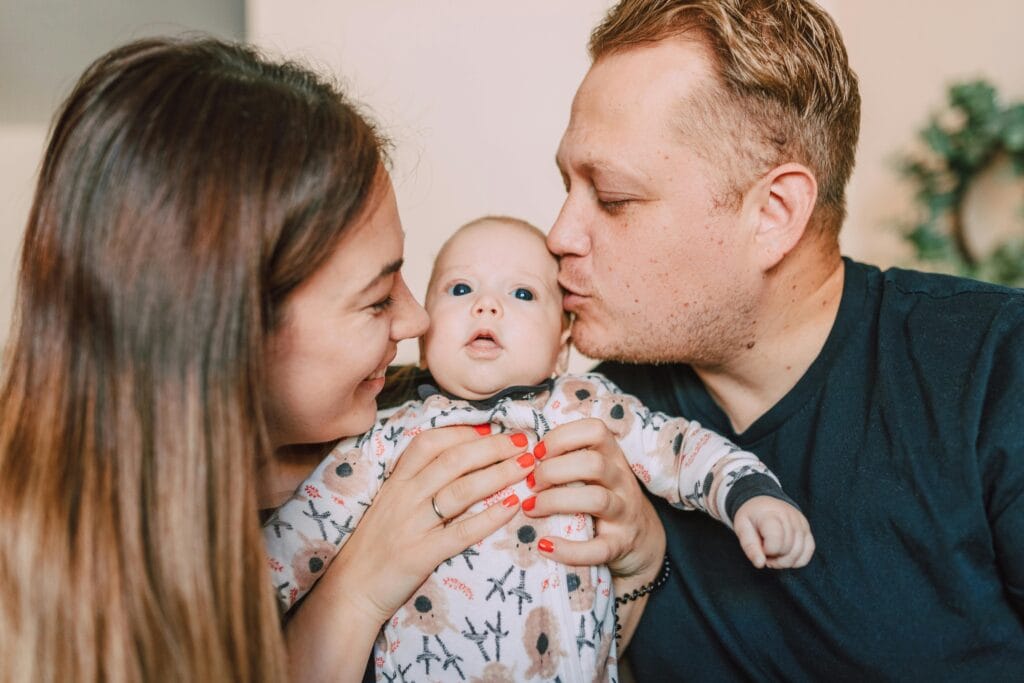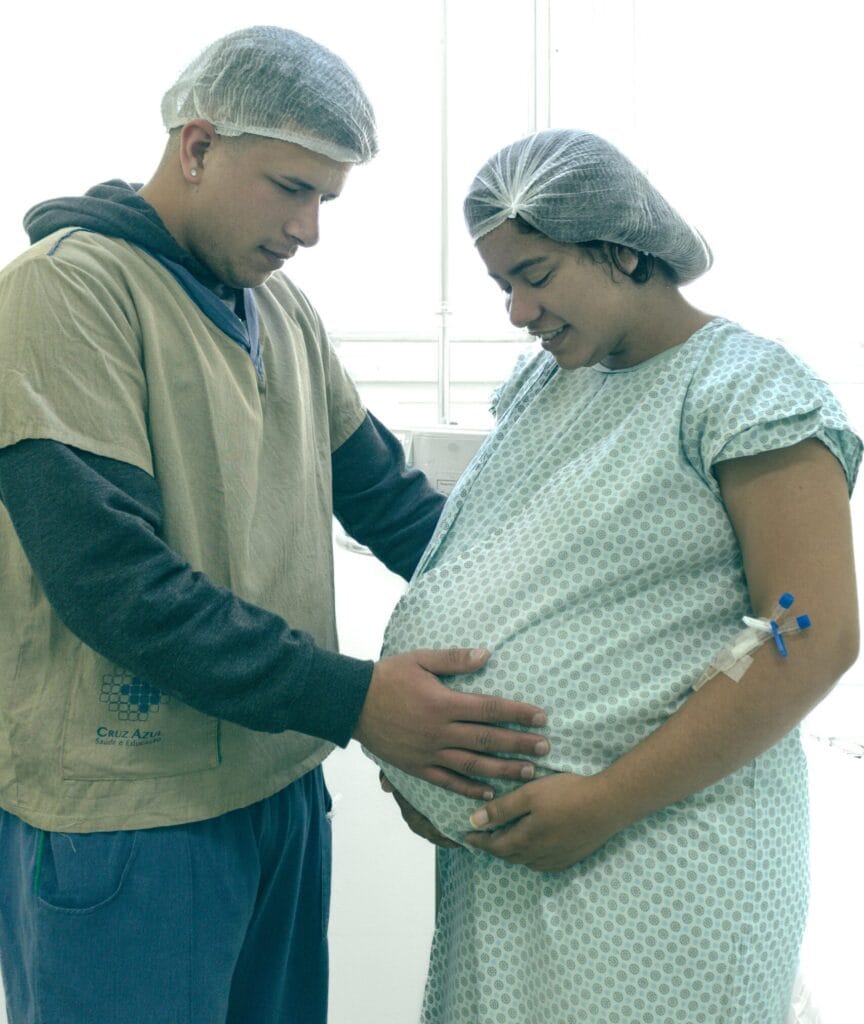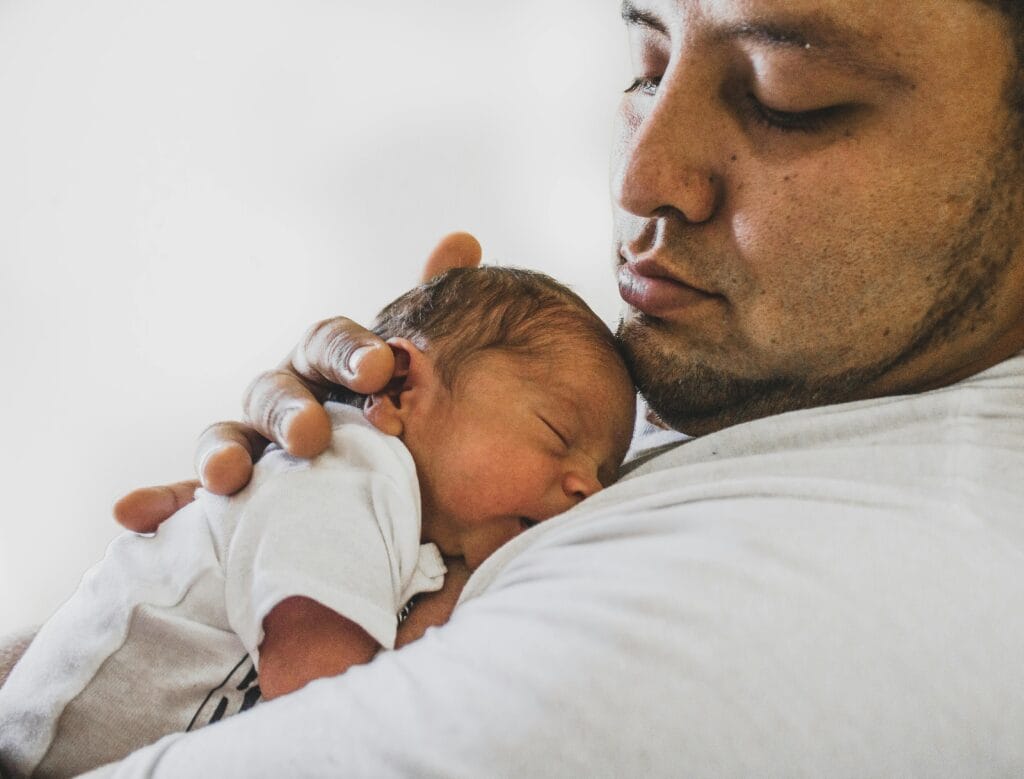Postpartum depression is not a child’s play. It takes a heavy toll not just on the sufferer but on the partner, family and other loved ones. Postpartum depression is hard to deal with. But there is good news: It can be conquered! As we can see in the following story:
The Story of Ann and Jim
Some years back in a sunny neighbourhood in Tennessee, lived a couple Ann and Jim. Ann was the kind of woman who could light up a room with her laughter. She was the life of every party, always ready with a joke or a kind word. Jim, her loving husband, often joked that he fell in love with her laugh before he fell in love with her.
When Ann became pregnant, their joy knew no bounds. They painted the nursery, read every parenting book they could find, and attended Lamaze classes. Jim even practiced diapering a stuffed teddy bear, much to Ann’s amusement. But after their beautiful baby girl, Emma, was born, something changed.
Ann, who was once so vibrant, became withdrawn. She cried frequently, felt overwhelmed by the smallest tasks, and seemed to lose interest in things she once loved. Jim was puzzled and worried. He tried to cheer her up with flowers, jokes, and even a surprise date night, but nothing seemed to work.
One day at work, Jim confided in a colleague about Ann’s sudden change in behavior. His colleague, a father of three, nodded knowingly and suggested that Ann might be experiencing postpartum depression (PPD). He advised Jim to seek medical help for Ann.
What is Postpartum Depression?
Postpartum depression is a serious mental health condition that affects many new mothers. It’s more than just the “baby blues,” which are feelings of worry, sadness, and tiredness that many women experience after having a baby. While the baby blues usually go away on their own within a few weeks, postpartum depression can last much longer and significantly impact a mother’s ability to care for herself and her baby.

According to the American Psychological Association (APA), postpartum depression can affect up to 1 in 7 women after childbirth (APA, 2020). Symptoms can include:
- Persistent sadness or mood swings
- Loss of interest in activities once enjoyed
- Difficulty bonding with the baby
- Feelings of worthlessness or guilt
- Severe anxiety or panic attacks
- Thoughts of harming oneself or the baby
How Jim Helped Ann
Jim took his colleague’s advice to heart. He made an appointment with Ann’s doctor, who confirmed that she was indeed suffering from postpartum depression. The doctor explained that PPD is caused by a combination of hormonal changes, physical exhaustion, and emotional factors.
Jim felt a mix of relief and concern. He was relieved to finally understand what was happening to Ann, but he was also worried about how to help her. With the doctor’s guidance, Jim and Ann started on a journey to recovery.
Here’s how Jim supported Ann through her postpartum depression:
- Educating Himself: Jim read up on postpartum depression to better understand what Ann was going through. He learned that PPD is not a sign of weakness or something Ann could simply “snap out of.”
- Being There: Jim made it a point to be present and supportive. He took over some of the household chores, cared for Emma during the night, and made sure Ann had time to rest.
- Encouraging Professional Help: Jim supported Ann in attending therapy sessions and taking prescribed medication. They found a therapist who specialized in postpartum depression, which made a significant difference.
- Listening Without Judging: Jim became a sounding board for Ann. He listened to her without trying to fix things or offer solutions unless she asked for them. Sometimes, just being heard was what Ann needed most.
Joining a Support Group: Jim and Ann found a support group for parents dealing with postpartum depression. Meeting other couples going through similar experiences helped them feel less alone.
How You Can Help as a Partner

If you find yourself in a situation similar to Jim’s, here are some steps you can take to support your partner through postpartum depression:
- Recognize the Signs: Be aware of the symptoms of postpartum depression. If your partner is showing signs of PPD, encourage her to speak with a healthcare professional.
- Be Patient and Understanding: Understand that postpartum depression is a medical condition that requires time and treatment to overcome. Be patient with your partner and avoid placing blame.
- Offer Practical Support: Help with household chores, cooking, and caring for the baby. Giving your partner a break can make a big difference.
- Encourage Self-Care: Encourage your partner to take time for herself, whether it’s taking a nap, going for a walk, or seeing friends. Self-care is essential for mental health.
- Seek Professional Help: Encourage your partner to seek professional help. This could include therapy, medication, or support groups.
- Stay Connected: Keep the lines of communication open. Check in with your partner regularly and let her know you’re there for her.
- Take Care of Yourself: Supporting someone with postpartum depression can be challenging. Make sure you’re also taking care of your own mental and physical health.
Conclusion
Ann and Jim’s story has a happy ending. With time, professional help, and Jim’s unwavering support, Ann recovered from postpartum depression. She found joy in motherhood and rediscovered her vibrant self. Jim learned valuable lessons about empathy, patience, and the importance of seeking help when needed.
If you or someone you know is struggling with postpartum depression, remember that help is available. By understanding PPD and knowing how to support your partner, you can make a significant difference in her recovery.
With a touch of humor and a whole lot of empathy, you can support your partner through one of the most challenging times in her life. Remember, being a new parent is a team effort, and with love and understanding, you can tackle anything together.
References:
American Psychological Association. (2020). Postpartum Depression. Retrieved from APA Website.
Mayo Clinic. (2021). Postpartum depression. Retrieved from Mayo Clinic Website.
National Institute of Mental Health. (2021). Postpartum Depression Facts. Retrieved from NIMH Website.
Harvard Medical School. (2021). Understanding Postpartum Depression. Retrieved from Harvard Health Publishing.














